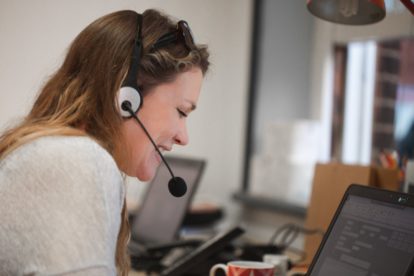Understanding self-harm and suicide
Our understanding self-harm and suicide page is here to provide you with some resources to help you support yourself as well as others around you.
The videos on this page talk about the sensitive topics of self-harm and suicide; how unmet emotional needs can give rise to different forms of self-harm and the relationship between self-harm and suicide.
If you are affected by the issues raised in any of these videos, please contact your GP, child & adolescent mental health services, or call 0300 111 6000 to speak to someone at Suffolk Mind who can help you to access the right support.
If you or someone you know needs emergency support, please visit A&E, call 999, or call 111 option 2.
Understanding self-harm video:
Conversations about self-harm video:
How do we approach having conversations about self-harm? It’s normal to feel concerned about speaking to someone, including children and young people, about self-harm; we may worry about saying something which makes things worse. This video shares some key steps to take when having important conversations with someone who may be self-harming.
Understanding suicide video:
Reflective listening
Reflective listening can help with understanding self-harm and suicide. It is the skill of feeding back to the speaker that we have heard what they have said. It is a vital skill for people who are seeking to connect and communicate effectively with others.
Reflective listening encourages the person who is speaking to feel able to continue by letting them know that we are listening to what they are saying.
When we feel like we are really being listened to and receiving good attention, it helps us to feel calmer and to think more clearly about how to address unmet emotional needs.
Watch our video to learn more about reflective listening.
If you or someone you know is experiencing a mental health crisis, please contact:
- Your GP
- Visit A&E
- Call 999
- Call the Samaritans on 116 123
The Samaritans are available 24 hours a day, 365 days a year. They offer a safe place for you to talk any time you like, in your own way – about whatever’s getting to you. They won’t judge you or tell you what to do, they’ll listen to you. - Call First Response on 0808 196 3494
First Response is a helpline for people of all ages in Norfolk and Suffolk who need urgent mental health support. The helpline is available all day, every day. Telephone the helpline f you are feeling unsafe, distressed or worried about your mental health. - Call 111 for non-urgent advice
Suffolk Mind is unable to provide a crisis service, however we can signpost to helpful information. Contact us on 0300 111 6000.
There are also a number of organisations in Suffolk and Norfolk with services to support you.
Access our introduction to mental health training
Our introduction to mental health training, The Mental Health Toolkit: The Essentials, is all about giving you an understanding of what it means to be emotionally healthy, why it is important and how emotional health supports physical health.
The Essentials is for you, your family and friends, and work colleagues; it’s for anybody with emotional health – and that means everybody!
These sessions are currently being held over Zoom. All you need to do to access these sessions is become a Friend of Suffolk Mind.











